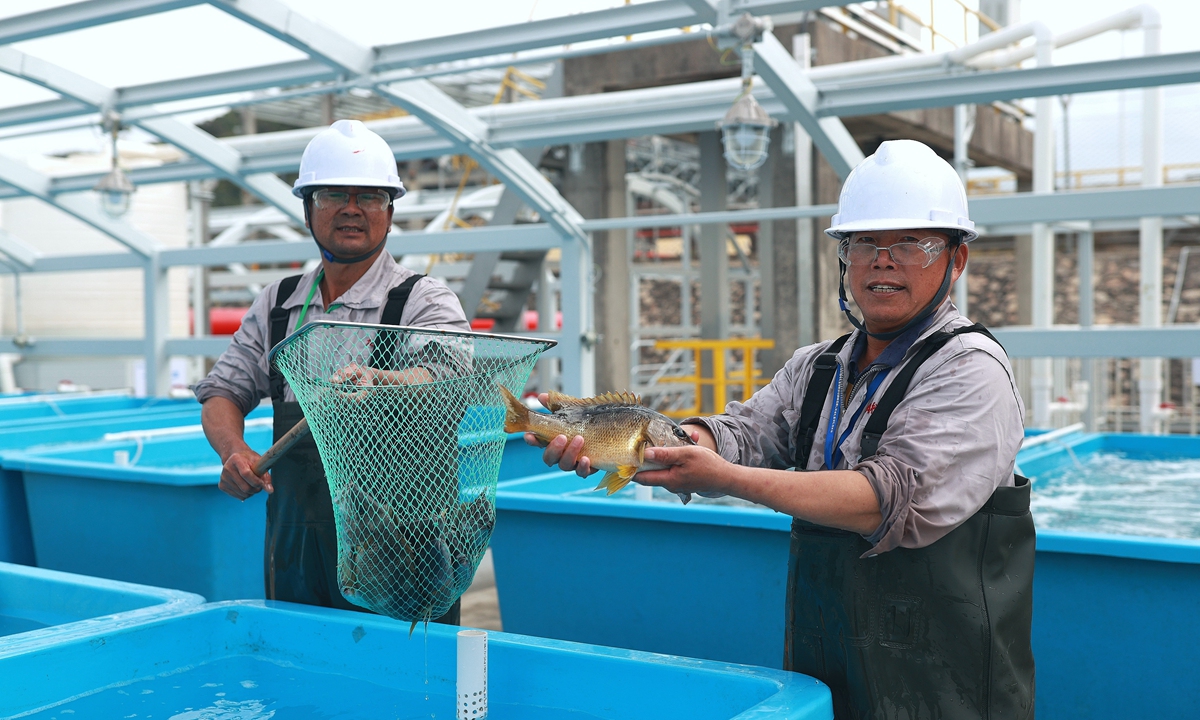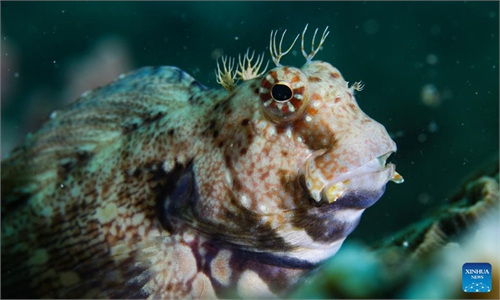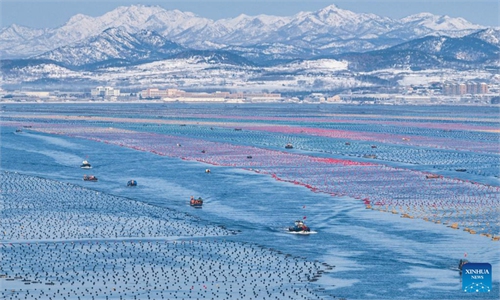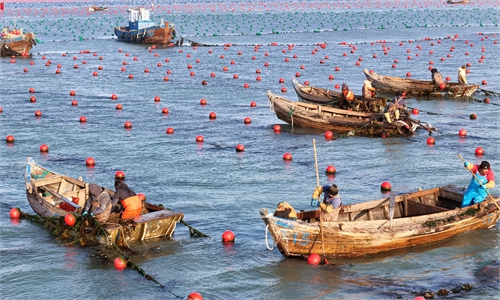Chinese oil giant CNOOC taps energy from LNG liquid-to-gas conversion, raising cold water fish

Photo: Courtesy of CNOOC
Fish were harvested out of a marine ranch off the coast of a liquefied natural gas (LNG) receiving facility, run by Chinese oil giant CNOOC, on Thursday, in the latest example of harnessing "cold energy" generated from LNG's liquid-to-gas conversion.
A total of 1,000 kilograms of red snapper and other Lutjanus fishes have grown accustomed to the artificial environment, and tests have shown the fishes have met with various physiological indicators. The experiment was announced as being successful after a 40-day observation period.
The ranch, marking a new step in the energy firm's development toward diversification, has an expected annual output of 50,000 kilograms.
Massive amount of "cold energy" is discharged into ocean water as LNG turned from liquid to gas and engineers at the Guangdong Dapeng LNG Co, in South China's Guangdong Province, one of the largest LNG receiving facilities in China, used that cold energy to build a cold-water aquaculture farm.
In a designated area, the water temperature is lowered by 5 C by the physical change, with the overall water temperature being monitored and kept at 15-25 C, which is highly suitable for the farming of fish with high economic value. As a result, a rare cold water marine ranch in the otherwise warm water of southern China is created.
The sea water is sterilized and causes no pollution to the natural marine environment.
And, the innovative way of raising cold water fish can also help reduce emissions, according to the company.
A number of coastal provinces in China have in recent years intensified construction of marine ranch with the aim to beef up food security and achieve high-quality development.
Guangdong Province has maintained a leading position in terms of the size of its marine economy. In July and September, the province came out with a total of 27 measures to beef up the high-quality development of its fishery industry and support the development of modern marine ranches.




